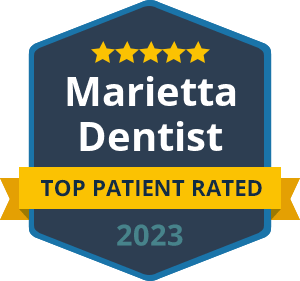When you wake up in the morning fatigued and wondering why you do not have a refreshed and rejuvenated feeling, it could indicate a serious sleep disorder. Sleep apnea is a very common sleep disorder affecting millions of Americans. Many people are unaware that they have this condition unless a bed partner complains about snoring or interruptions in breathing.
Sleeping relaxes your muscles, and for some, this relaxation causes those muscles in the back of the throat to collapse. This will obstruct or partially close off the airway. In the case of complete obstruction, the patient will stop breathing for a few seconds. When the brain signals a lack of oxygen, you wake up and begin breathing and the cycle starts again. This can happen a few times a night or hundreds of times.
Partial blockage of the airway leads to snoring. When you turn to sleep on your side, the snoring usually stops. Snoring makes it difficult for your partner to get rest, and occasionally you may snore loud enough to interrupt your sleep as well.
Sleep apnea problems are treatable once properly diagnosed. A plan is put in place to provide the most effective treatment for the condition. A sleep study may be required to determine the extent of the condition. Remedies can include special dental devices or a continuous positive airway pressured machine (CPAP) that constantly blows air into the airway to prevent it from collapsing while you are sleeping.
Relief from Snoring and Teeth Grinding
In addition to sleep apnea and snoring, teeth grinding, or bruxism, is another sleep condition that can have ramifications for you and your partner. While your partner may cringe at the noise of your teeth grinding together, like fingernails on a chalkboard, your teeth are undergoing tremendous, unnecessary pressure. This can lead to jaw pain, headaches and cracked or damaged teeth.
These sleep conditions can be addressed with a variety of methods. A custom nightguard fitted to your teeth positions your jaw to keep the airway open, which can eliminate snoring. Nightguards are also constructed to prevent bruxism. These devices provide a cushion between the upper and lower teeth.
Adequate, quality sleep is an important part of being healthy. If snoring, sleep apnea or bruxism is affecting your sleep or that of a loved one, give us a call at Engineered Smiles. Dr. Wang has the expertise to help you solve the problem and restore your ability to sleep well. Contact us today to schedule your appointment.



